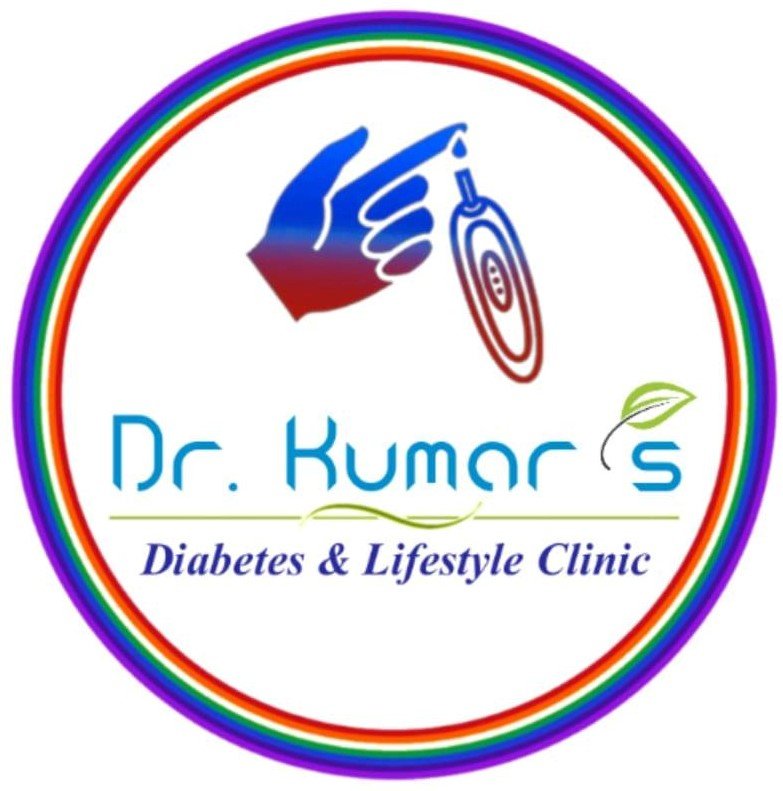Patient Education
Hypoglycemia: Hypoglycemia occurs when blood sugar level falls below 70mg/dl. Hypoglycemia may occur to any individual who is on anti diabetic medications. Most common causes of hypoglycemia are either overdose of medications (insulin or other oral anti diabetic medications) and/or poor diet intake after taking medications. Other causes of hypoglycemia are prolonged fasting, excess physical activity, excess alcohol intake, extremes of ages, impaired liver or kidney functions, etc.
Stages of Hypoglycemia:
Level 1 or Mild Hypoglycemia: Blood sugar level <70mg/dl
Level 2 or Moderate Hypoglycemia: Blood sugar level <54mg/dl
Level 3 or severe hypoglycemia: If patient is drowsy or unconscious or requires external help to recover from hypoglycemia.
Signs & Symptoms of Hypoglycemia:
Early warning signs and symptoms of hypoglycemia are Hunger, Shakiness, Dizziness, Excess sweating, palpitation or fast heart beats, inability to concentrate, confusion, irritability, anger, anxiety, nervousness, headache etc.
If diabetic hypoglycemia isn’t treated then severe hypoglycemia may result. Signs & symptoms of severe hypoglycemia are Confusion, Drowsiness, difficult speech or slurred speech, weakness, inability to eat or drink jerky movements, blurred vision, convulsions, coma, and death.
Night time hypoglycemia: Diabetic hypoglycemia may happen during sleep. Signs & Symptoms of midnight or night time hypoglycemia are damp sheets or night cloths due to excess sweating, nightmares, waking up due to excess thirst or hunger, tiredness or confusion upon waking, early morning headache, etc.
Hypoglycemia unawareness: This is a very serious situation in which patient is not able to identify the warning signs & symptoms of hypoglycemia and patient may slip in to coma or die due to severe hypoglycemia without feeling any protective signs & symptoms of hypoglycemia. Causes of hypoglycemia unawareness are very advanced stage of the disease, multiple co-morbidities especially severe autonomic neuropathy, cognitive impairment, recurrent episodes of hypoglycemia, etc. People living with diabetes having risk of hypoglycemia unawareness must be managed with less stringent sugar control, frequent small meals and regular checkup with doctor to adjust medicine dose and glycemic targets.
Complications of untreated or prolonged hypoglycemia: Remember our brain need glucose to function. If early signs & symptoms of hypoglycemia are ignored then it may result in severe hypoglycemia and patient may lose consciousness. It may cause seizure and death in untreated cases. Recurrent severe and prolonged hypoglycemia may also result in cognitive impairments.
NEVER IGNORE ANY SIGNS & SYMPTOMS OF HYPOGLYCEMIA.
Treatment of Hypoglycemia: Rule of 15
If you think your blood sugar is too low then follow rule of 15. Check your capillary blood glucose (CBG) level with a good quality glucometer. If it is ≤70mg/dl then take 15 grams of glucose. Wait 15 minutes and check CBG again and if it’s less than ≤70mg/dl then take 15 grams of glucose again. Repeat same till your blood sugar level in normal range. After correcting blood sugar level with fast acting carbohydrate patient should take full meal to avoid risk of delayed hypoglycemia.
If you don’t have glucometer and you are experiencing signs and symptoms of hypoglycemia then follow “Rule of 15” till your signs & symptoms of hypoglycemia disappear.
If you don’t have glucose then other source of fast acting carbohydrate like fruit juice, sugar, regular soda, hard candy can be used.
Prevention of Hypoglycemia: Hypoglycemia is a life-threatening complication but can be prevented by few simple precautions like monitor your blood sugar regularly, take your medications as per advice of your doctor, don’t delay or skip meals, take frequent small meals instead of 2-3 heavy meals, adjust your medication or eat extra if you are increasing your physical activity, avoid harmful use of alcohol, keep diabetes identification card for easy identification during emergencies, etc.
- Hyperglycemic emergencies DKA/HHS
Diabetic ketoacidosis (DKA) and Hyperosmolar Hyperglycemic State (HHS) are two important life-threatening complications of high blood sugar level. DKA usually occurs among Type 1 diabetes (T1DM) patients who don’t have insulin in their body. HHS usually occurs among older type 2 diabetes (T2DM) patients who are having relative insulin deficiency. Both DKA and HHS are high blood sugar level and absolute or relative insulin deficiency. DKA usually develops rapidly within few hours of the precipitating events but HHS onset is usually insidious which develops over days or weeks.
Risk factors:
The two most common risk factors in the DKA or HHS are inadequate insulin therapy (whether omitted or insufficient insulin regimen) or the presence of infection. Other precipitating factors include heart attack, stroke, pulmonary embolism, pancreatitis, alcohol and illicit drug use. Certain drugs like steroids, thiazide diuretics etc. may also precipitate DKA or HHS.
Clinical Presentation:
Signs & symptoms of both DKA and HHS are overlapping. The common signs & symptoms of DKA and HHS is due to hyperglycemia. Both of the conditions may present with polyuria, polyphagia, polydipsia, weight loss, weakness, and physical signs of intravascular volume depletion, such as dry buccal mucosa, sunken eye balls, poor skin turgor, tachycardia, hypotension and shock in severe cases. Respiratory
Prevention:
T1DM patients and T2DM patients who are on high insulin dose must not stop their insulin injections. During illness they should keep taking small meals and prescribed medicines. Frequently check blood sugar level at home and adjust insulin dose as per CBG reports. All diabetes patients who are having signs and symptoms of hyperglycemia or persistently high blood sugar level must consult their doctors immediately for guidance.
Treatment:
Since management of DKA & HHS requires close monitoring of insulin dose and intravenous fluid, all such patients should be managed in a hospital setting.
Complications:
Hypokalemia, Acidosis, Stroke, Respiratory failure, coma, death.
- Retinopathy
- Nephropathy:
- Neuropathy:
- Other complications.
Call us for an appointment
+918116897296
Feel free to contact us.
kumarsclinicdgp@gmail.com
Reach to us via our location
View Map
